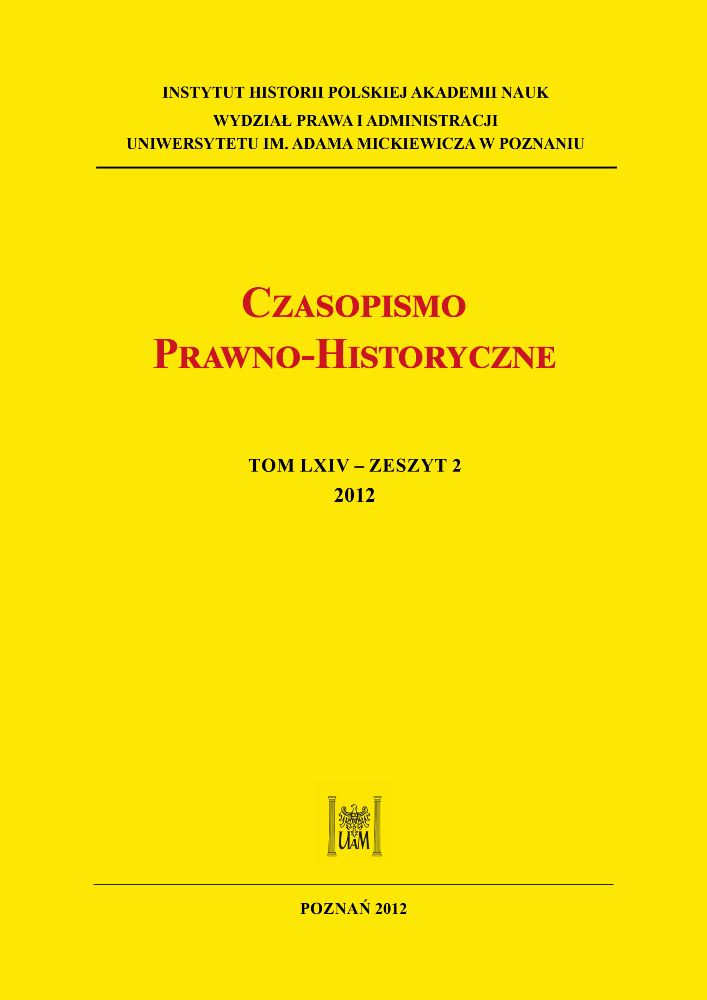Abstrakt
The si navis ex Asia venerit condition made a spectacular career in the texts of Roman jurists. It was so characteristic that even the medieval works that drew on the Roman tradition had plenty of referrals to that condition. Its popularity was obviously connected with its reference to that sphere of life that was essential for the development of the Roman state. However, there is not enough data to allow determination to what extent the frequency of the reference to those words was influenced by sociological factors, or the authority of jurists whose words were quoted, and who referred to that condition. In other words, whether it was the ‘charisma’ of those authorities that played a decisive role in its wide reception and recognition. The review of texts that contain the formula of the above condition allows us to formulate a thesis that the si navis ex Asia venerit condition was used to present issues from almost all areas of law, including the procedural law. It usually took the form of a suspending, casuistic and positive condition. It appeared only once as a negative condition (Digests 44,7,44,2). A careful analysis of individual fragments of the selected texts in which the condition did appear allows us to formulate a postulate that a philological method in the research into Roman law should be used with a substantial degree of caution.
Licencja
Copyright
© 2012 Wydział Prawa i Administracji UAM w Poznaniu
OPEN ACCESS




